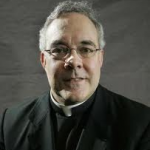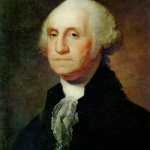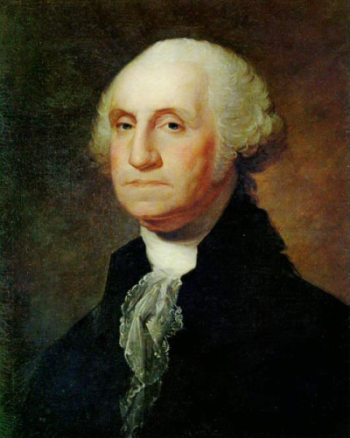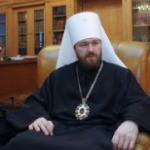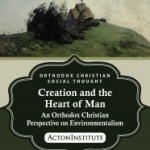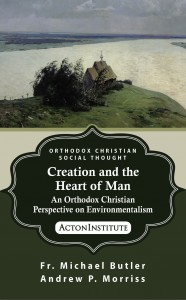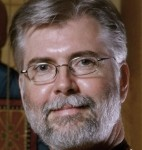Deprecated: trim(): Passing null to parameter #1 ($string) of type string is deprecated in
/home/aoiusa/public_html/wp-content/plugins/sexybookmarks/public.php on line
388
Deprecated: trim(): Passing null to parameter #1 ($string) of type string is deprecated in
/home/aoiusa/public_html/wp-content/plugins/sexybookmarks/public.php on line
394
Deprecated: trim(): Passing null to parameter #1 ($string) of type string is deprecated in
/home/aoiusa/public_html/wp-content/plugins/sexybookmarks/public.php on line
400
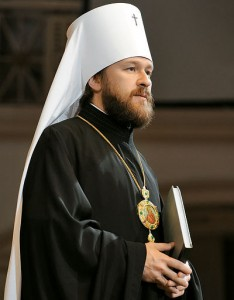
Source: World Council of Churches
Address by Metropolitan Hilarion of Volokolamsk,
Chairman of the Department for External Church Relations of the Moscow Patriarchate,
At the 10th Assembly of the World Council of Churches
Busan, the Republic of Korea, 1 November 2013
Your Holinesses and Beatitudes, Your Eminences and Graces, dear brothers and sisters, esteemed delegates of the Assembly,
The World Council of Churches has a long and rich history. Set up after the Second World War, the Council responded to the expectations of Christians of various confessions who strove to meet, to get to know each other and to work together. Over the sixty five years since the founding of the WCC, several generations of Christians belonging to religious communities that were cut off from each other have discovered for themselves the faith and life of their brothers and sisters in Christ. Many prejudices regarding other Christian traditions have been overcome, yet at the same time that which divides Christians to the present has been acknowledged ever more clearly and deeply. The greatest achievement of the Council has been those encounters, that well intentioned and mutual respectful inter-Christian communication, which has never allowed for compromises in the field of theology and morality and which has enabled us to remain true to ourselves and to bear witness to our faith, while at the same time growing in love for each other.
The World Council of Churches today remains a unique instrument of inter-Christian cooperation that has no analogy in the world. However, the question arises as to how effective this instrument is. We must note with some regret that, in spite of all of the efforts aimed at bringing Christians of various confessions closer to each other, within Christendom not only are the divisions of the past not disappearing, but new ones are arising. Many Christian communities continue to split up, whereas the number of communities that unite with one another is extremely small.
One of the problems which the WCC is encountering today is that of finances. It is said that it is connected with the world economic crisis. I cannot agree with this opinion. The experience of other international organizations, whose work is of general benefit and therefore needed, has shown that funding can often be found for noble goals. This means that the problem is not the economic crisis, but how relevant and important is the work of the WCC for today’s international community, which is made up to a significant degree by, and at times, a majority of Christians.
The creation of the WCC was determined by the endeavour to find answers to the challenges of the post-War period. Yet in recent years the world has changed greatly, and today Christians from all over the world are facing new challenges. It is precisely upon how successfully we respond to these challenges that the need for our organization in the future depends. The contemporary situation demands from us more decisive action, greater cohesion and more dynamism. And yet it also demands a re-orientation of the basic direction of our work, a change in priorities in our discussions and deeds. While we continue to discuss our differences in the comfortable atmosphere of conferences and theological dialogues, the question resounds ever more resolutely: will Christian civilization survive at all?
In my address I would like to focus on two fundamental challenges which the Christian world today faces in varying degrees. The first is that of the militant secularism which is gathering strength in the so called developed countries, primarily in Europe and America. The second is that of radical Islamism that poses a threat to the very existence of Christianity in a number of regions of the world, mainly in the Middle East, but also in some parts of Asia and Africa.
Militant secularism in Europe has a long history going back to the period of the French revolution. But it is only in the twentieth century in the countries of the so called socialist bloc that godlessness was elevated to the level of state ideology. As regards the so called capitalist countries, they preserved to a significant degree the Christian traditions which shaped their cultural and moral identity.
Today these two worlds appear to have changed roles. In the countries of the former Soviet Union, in particular in Russia, Ukraine, Belorussia and Moldavia, an unprecedented religious revival is underway. In the Russian Orthodox Church over the past twenty five years there have been built or restored from ruins more than twenty five thousand churches. This means that a thousand churches a year have been opened, i.e. three churches a day. More than fifty theological institutes and eight hundred monasteries, each full with monks and nuns, have been opened.
In Western European countries we can observe the steady decline of the numbers of parishioners, a crisis in vocations, and monasteries and churches are being closed. The anti-Christian rhetoric of many politicians and statesmen becomes all the more open as they call for the total expulsion of religion from public life and the rejection of the basic moral norms common to all religious traditions.
The battle between the religious and secular worldview is today raging not in academic auditoriums or on the pages of newspapers. And the subject of the conflict is far from being exhausted by the question of belief or lack of belief in God. Today this clash has entered a new dimension and touches upon the fundamental aspects of the everyday life of the human person.
Militant secularism is aimed not only at religious holy sites and symbols by demanding that they be removed from the public domain. One of the main directions of its activity today is the straightforward destruction of traditional notions of marriage and the family. This is witnessed by the new phenomenon of equating homosexual unions with marriage and allowing single-sex couples to adopt children. From the point of view of biblical teaching and traditional Christian moral values, this testifies to a profound spiritual crisis. The religious understanding of sin has been conclusively eroded in societies that until recently thought of themselves as Christian.
Particularly alarming is the fact that we are dealing in this instance not only with a choice of ethics and worldview. Under the pretext of combating discrimination, a number of countries have introduced changes in family legislation. Over the past few years single-sex cohabitation has been legalized in a number of states in the USA, a number of Latin American countries and in New Zealand. This year homosexual unions have attained the legal status of ‘marriage’ in England and Wales and in France.
We have to state clearly that those countries that have recognized in law homosexual unions as one of the forms of marriage are taking a serious step towards the destruction of the very concept of marriage and the family. And this is happening in a situation where in many historically Christian countries the traditional family is enduring a serious crisis: the number of divorces is growing, the birthrate is declining catastrophically, the culture of a family upbringing is degraded, not to mention the prevalence of sexual relations outside of marriage, the increase in the number of abortions and the increase of children brought up without parents, even if those parents are still alive.
Instead of encouraging by all means possible traditional family values and supporting childbirth not only materially but also spiritually, the justification of the legitimacy of ‘single-sex families’ who bring up children has become the centre of public attention. As a result, the traditional social roles are eroded and swapped around. The notion of parents, i.e. of the father and the mother, of what is male and what is female, is radically altered. The female mother is losing her time-honoured role as guardian of the domestic hearth, while the male father is losing his role as educator of his children in being socially responsible. The family in its Christian understanding is falling apart to be replaced by such impersonal terms as ‘parent number one’ and parent number two’.
All of this cannot but have the most disastrous consequences for the upbringing of children. Children who are brought up in families with ‘two fathers’ or ‘two mothers’ will already have views on social and ethical values different from their contemporaries from traditional families.
One of the direct consequences of the radical reinterpretation of the concept of marriage is the serious demographic crisis which will only grow if these approaches are adhered to. Those politicians who are pushing the countries of the civilized world into the demographic abyss are in essence pronouncing upon their peoples a death sentence.
What is to be the response of the Christian Churches? I believe deeply this response can be none other than that which is based on Divine Revelation as handed down to us in the Bible. Scripture is the common foundation which unites all Christian confessions. We may have significant differences in the interpretation of Scripture, but we all possess the same Bible and its moral teaching is laid out quite unambiguously. Of course, we differ in the interpretation of certain biblical texts when they allow for a varied interpretation. Yet much in the Bible is stated quite unambiguously, namely that which proceeds from the mouth of God and retains its relevance for all subsequent ages. Among these divine sayings are many moral commandments, including those which concern family ethics.
In speaking out against all forms of discrimination, the Church nonetheless must vindicate the traditional Christian understanding of marriage as between a man and a woman, the most important mission of which is the birth and upbringing of children. It is precisely this understanding of marriage that we find on the pages of the Bible in the story of the first human family. This same understanding of marriage we also find in the Gospels and the apostolic epistles. The Bible does not know of any alternative forms of marriage.
Unfortunately, not all Christian Churches today find within themselves the courage and resolve to vindicate the biblical ideals by going against that which is fashionable and the prevalent secular outlook. Some Christian communities have long ago embarked on a revision of moral teaching aimed at making it more in step with modern tendencies.
It is often said that the differences in theological and ethical problems are linked to the division of Christians into conservatives and liberals. One cannot but agree with this when we see how in a number of Christian communities a headlong liberalization is occurring in religious ethics, as a rule under the influence of processes taking place in secular society. At the same time the witness of the Orthodox Churches should not be reduced to that of conservatism. The faith of the Ancient Church which we Orthodox confess is impossible to define from the standpoint of conservatism and liberalism. We confess Christ’s truth which is immutable, for ‘Jesus Christ is the same yesterday, and today, and for ever’ (Heb. 3:8).
We are not speaking about conservatism but of fidelity to Divine Revelation which is contained in Scripture. And if the so called liberal Christians reject the traditional Christian understanding of moral norms, then this means that we are running up against a serious problem in our common Christian witness. Are we able to bear this witness if we are so deeply divided in questions of moral teaching, which are as important for salvation as dogma?
In this regard I would like to speak about the Church’s prophetic vocation. I recall the words of Fr. Alexander Schmemann who said that a prophet is far from being someone who foretells the future. In reminding us of the profound meaning of prophecy, Schmemann wrote: ‘The essence of prophecy is in the gift of proclaiming to people God’s will, which is hidden from human sight but revealed to the spiritual vision of the prophet’ (Schmemann, The Celebration of Faith, vol.1: I Believe…, p.112).
We often speak of the prophetic voice of the Churches, yet does our voice actually differ much from the voice and rhetoric of the secular mass media and non-governmental organizations? Is not one of the most important tasks of the WCC to discern the will of God in the modern-day historical setting and proclaim it to the world? This message, of course, would be hard to swallow for the powerful of this world. However, in refusing to proclaim it, we betray our vocation and in the final run we betray Christ.
In today’s context, when in many countries and regions of the world the revival of religion is underway and yet at the same time aggressive secularism and ideological atheism is raising its head, the World Council of Churches must find its own special voice that is understandable to modern-day societies and yet which proclaims the permanent truths of the Christian faith. Today, as always, we are called upon to be messengers of the Word of God, the Word which is ‘quick, and powerful, and sharper than any two-edged sword’ (Heb. 4: 12); the Word which is not bound (2 Tim. 2: 9). It is only then that we can bring to Christ new souls, in spite of the resistance of the ‘rulers of the darkness of this world’ (Eph. 6: 12).
Allow me to speak now of the second global challenge for the entire Christian world, the challenge of radicalism on religious grounds, in particular radical Islamism. I use this term fully aware that Islamism is in no way identical to Islam and in many ways is the opposite of it. Islam is a religion of peace able to coexistence with other religious traditions, as is demonstrated, for example, by the centuries-old experience of peaceful coexistence between Christians and Muslims in Russia. Radical Islamism, known as Wahhabism or Salafism, is a movement within the Islamic world that has as its goal the establishment of a worldwide Caliphate in which there is no place for Christians.
Here I shall not go into the reasons for the appearance and rapid growth of this phenomenon. I shall say only that in recent years the persecution of Christians has assumed a colossal scale. According to the information of human rights organizations, every five minutes a Christian dies for his faith in one or another part of the world, and every year more than a hundred thousand Christians die a violent death. According to published data, no less than one hundred million Christians worldwide are now subject to discrimination and persecution. Information on the oppression of Christians comes in from Iraq, Syria, Egypt, North Sudan, Afghanistan, Pakistan and a number of other countries. Our brothers and sisters are being killed, driven from their homes and separated from their families and loved ones; they are denied the right to practice their faith and educate their children according to their religious beliefs. Christians are the most persecuted religious community on the planet.
Unfortunately, manifestations of discrimination with regard to the Christian minority can no longer be treated as separate incidents: in some regions of the world they have become a well established tendency. As a result of the continuing conflict in Syria the number of murders of Christians has increased, churches and holy sites have been destroyed. The Copts, the original inhabitants of Egypt, have today become a target for attacks and riots, and many have been forced to abandon their own country.
Radicalism on religious grounds is growing not only in the countries where the population is predominantly Muslim. It is important to draw attention to the situation in the area of Asia where today’s Assembly is taking place. In this region the Christian communities for more than three hundred years, thanks to the efforts of missionaries, have grown and developed. According to data by the experts, over the past ten years the level of discrimination of Christians in the region has increased many times over. Great anxiety is caused by the position of the Christian communities of Indonesia, where over the past two years the level of aggression aimed at Christians has increased considerably. Information on the discrimination of Christians is coming in from other Asian countries too.
Today we have to be aware that one of the most important tasks facing us is the defense of our persecuted brothers and sisters in various areas of the world. This task demands urgent resolve for which we must employ all possible means and levers—diplomatic, humanitarian, economic and so on. The topic of the persecution of Christians ought to be examined in the context of inter-Christian cooperation. It is only through common energetic endeavours that we can help our suffering brothers and sisters in Christ.
Much is done in this regard today by the Roman Catholic Church. There are Christian organizations that monitor the situation and collect charitable aid for suffering Christians. Our Church also participates in this work. I believe that of much benefit would be joint conferences and the exchange of information and experience between Christian human rights organizations that are pursuing this problem.
The rights of Christians can be guaranteed only by supporting dialogue between religious communities at both the inter-state and international level. Therefore, one of the important directions of the WCC’s work is inter-religious dialogue. I believe that we ought to pay more attention to the development of a deep and interested mutual inter-action with traditional religions, especially with Islam.
The World Council of Churches is already working to draw attention to the problem of the persecution of Christians. As an example I can quote the Christian-Muslim consultation on the topic of the Christians presence and witness in the Arab world, organized by the WCC in January 2012 in Lebanon, as well as the conference held there in May of this year on the persecution of Christians, in which the General Secretary of the WCC participated. I would also like to remark upon the work carried out by the Council with the aim of reducing the level of tension in Syria, of averting an escalation of the conflict and of not allowing external military intervention.
Addressing those who confessed Christianity St Peter said: ‘But rejoice, inasmuch as ye are partakers of Christ’s sufferings; that, when his glory shall be revealed, ye may be glad also with exceeding joy’ (1 Pet. 4: 13). Recalling these words, we prayerfully desire that the All-Merciful Lord shall grant comfort and joy to those afflicted and oppressed so that they, in feeling the help and compassion of those brothers and sisters who are far away geographically yet close in the faith, may find in themselves the strength, with the aid of the grace of God, to travel further down the path of steadfast faith.
In concluding my speech, I would like to thank from the bottom of my heart the Christian communities of South Korea for the hospitality that they have shown us and the excellent organization of this General Assembly. The Russian Orthodox Church sympathizes with the Korean people in its striving to find unity, and in prayer and in deeds supports the processes for the overcoming of tension in relations between the two countries of the Korean peninsula.
To all of you, the participants of the Assembly, I enjoin the aid of God in joint labours and those labours which each of us carry out in their churches and communities. May our witness become the word of truth which the world needs so much today.


 In this short talk, Rev. Robert A. Sirico, co-founder and president of the Acton Institute, offers some general observations about the new “Apostolic Exhortation” published Nov. 26 by Pope Francis. Specifically, Rev. Sirico addresses the economic content of the work, titled “Evangelii Gaudium” (The Joy of the Gospel) and poses some questions for further reflection.
In this short talk, Rev. Robert A. Sirico, co-founder and president of the Acton Institute, offers some general observations about the new “Apostolic Exhortation” published Nov. 26 by Pope Francis. Specifically, Rev. Sirico addresses the economic content of the work, titled “Evangelii Gaudium” (The Joy of the Gospel) and poses some questions for further reflection. 